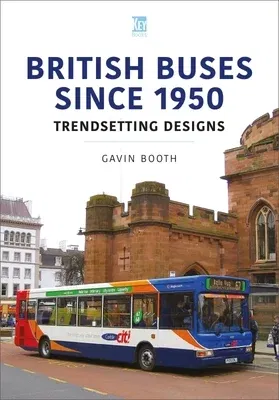Gavin Booth
(Author)British Buses Since 1950: Trendsetting DesignsPaperback, 31 May 2023

Qty
1
Turbo
Ships in 2 - 3 days
In Stock
Free Delivery
Cash on Delivery
15 Days
Free Returns
Secure Checkout

Part of Series
Britain's Buses
Print Length
96 pages
Language
English
Publisher
Key Publishing
Date Published
31 May 2023
ISBN-10
1802822402
ISBN-13
9781802822403
Description
Product Details
Author:
Book Format:
Paperback
Country of Origin:
GB
Date Published:
31 May 2023
ISBN-10:
1802822402
ISBN-13:
9781802822403
Language:
English
Pages:
96
Publisher:
Series: